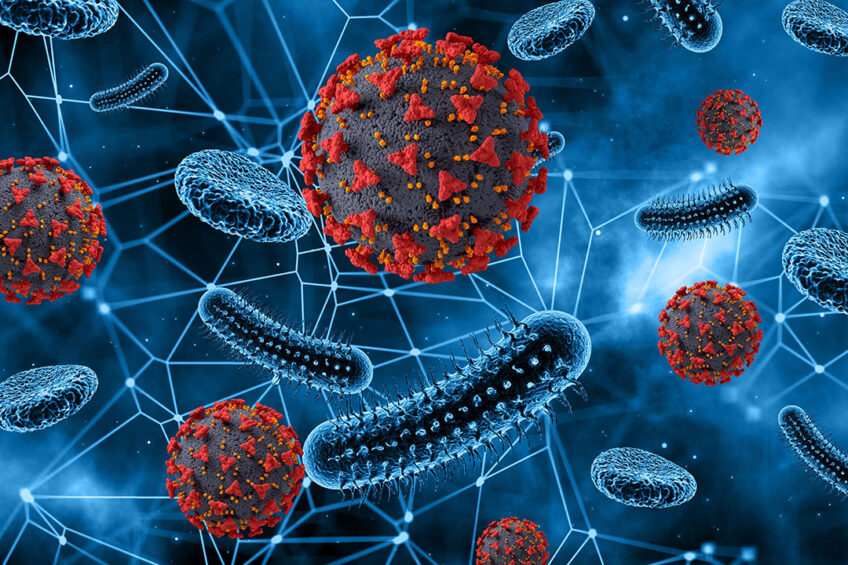Funding for artificial intelligence poultry gut monitoring

Research into a new approach to detect infection and anti-microbial resistance and support novel therapeutics in broiler precision farming is to receive part of an £11.5 million (€13.4 m) UK government investment.
Led by Dr Tania Dottorini, associate professor in bioinformatics at the University of Nottingham, the new approach involves monitoring the gut microbiome via artificial intelligence and omics.
Dottorini’s research themes include the development of novel informatics, machine learning and artificial intelligent solutions to understand and diagnose infectious diseases in both animals and humans and to study the insurgence and propagation of antimicrobial resistance. Her research often involves merging different disciplines and knowledge to develop predictive models and solve data mining tasks in scenarios involving large-scale data analysis from omics technologies (genomics, transcriptomics, proteomics).
Antimicrobial-resistant E. coli bacteria
Her most recent research, published in the journal PLoS Computational Biology last year, involved working with Chinese scientists in performing a longitudinal study in a large-scale commercial poultry farm in China. The study considered the emergence of antimicrobial-resistant E. coli bacteria and antimicrobial resistance genes (ARGs) and spread to humans.
Whole-genome sequencing and gene-sharing network analysis powered by machine learning identify antibiotic resistance sharing between animals, humans and the environment in livestock farming involved using whole-genome phylogenetic analysis and network analysis based on single nucleotide polymorphisms (SNPs).
Multidrug-resistance profiles
The researchers found highly interrelated non-pathogenic and pathogenic E.coli strains with phylogenetic intermixing and a high prevalence of share multidrug-resistance profiles among livestock, humans and the environment.
The funding stream, developed in conjunction with academia, industry and policymakers, aims to deliver innovative on-farm solutions that will mitigate the impact of endemic diseases on the UK livestock sector and heavily emphasise digital agriculture and machine learning.
Bringing together farmers, vets and researchers
Christine Middlemiss, UK chief veterinary officer, welcomed the funding – the second phase of support – saying the UK remained committed to working collaboratively with farmers to overcome infectious animal disease: “This funding brings together farmers, vets and researchers to develop and test new solutions to some of our most serious animal health challenges on farm, making a real difference to the health and wellbeing of the UK’s livestock.”
Other poultry projects receiving financial support include:
- · Preventing drops in egg production in UK free-range flocks: understanding the interactions between farm practices, flock coinfections and immunity. This is being led by Dr Kannan Ganapathy at the University of Liverpool.
- · Effects of co-infections on Marek’s disease in poultry and the development of novel recombinant Marek’s disease virus vector vaccines. The principal investigator is The Pirbright Institute’s Dr Yongxui Yao.
Professor Guy Poppy, interim executive chair at the Biotechnology and Biological Sciences Research Council, said endemic diseases in the UK livestock sector posed significant challenges to animal welfare, productivity and sustainable farming.
“By bringing together the collective expertise of academia, industry and end-users, we are confident this initiative will lead to ground-breaking achievements in disease control, fostering a healthier and more productive livestock sector.”












